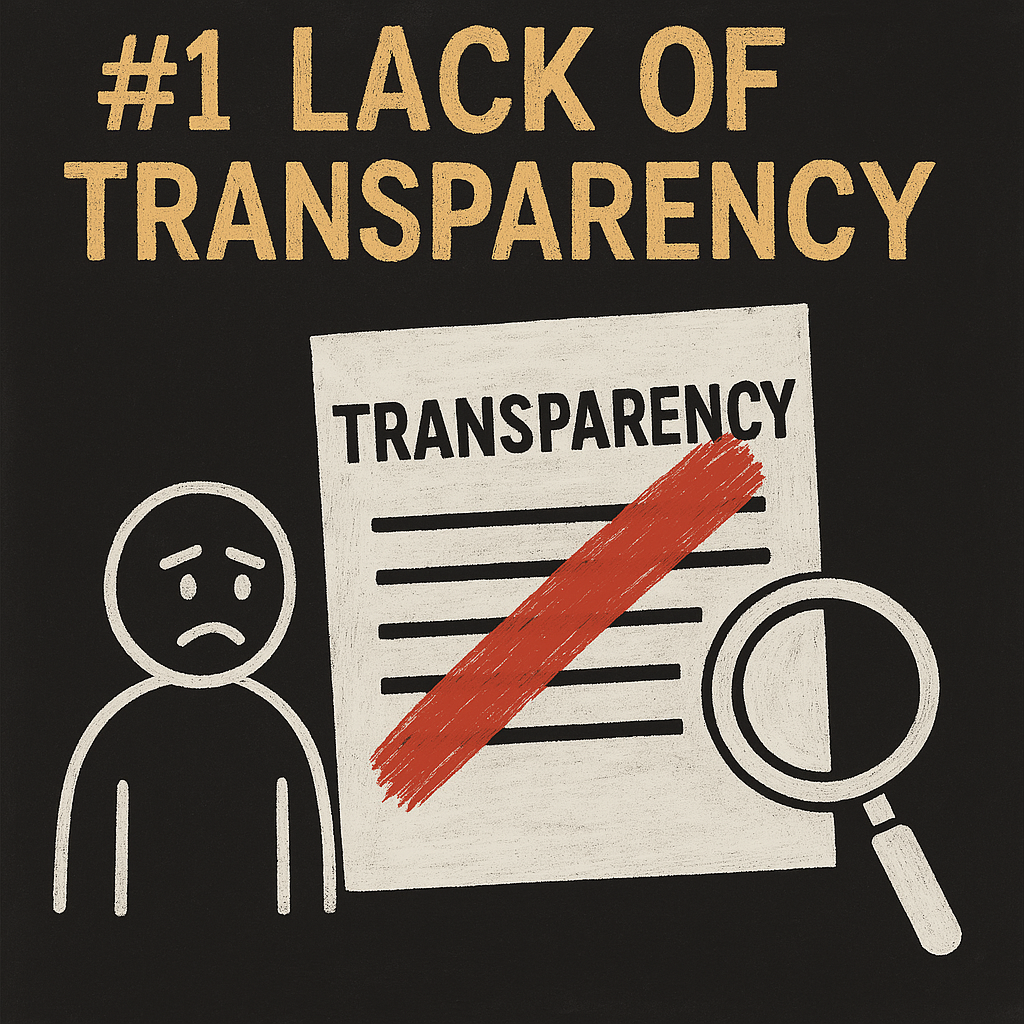A corporate governance framework is meant to provide structure, accountability, and long-term success for companies. Yet, many businesses (big and small, it doesn’t matter) struggle with governance failures. Some even collapse entirely because of it.
Recent data is even showing that company attention to governance is falling… despite its growing importance.
But why does this happen?
What are the key reasons corporate governance fails?
And (most importantly) how can companies avoid these pitfalls? Let’s break it down step by step.

Main reasons a corporate governance framework fails
#1 Lack of transparency
This shouldn’t come off as surprise as transparency is the foundation of good governance. Without it, companies become breeding grounds for corruption, misinformation, and distrust…having a detrimental effect on public perception.
Many companies struggle with transparency because they either:
- Intentionally hide information to protect their interests (who remembers the Enron scandal?)
- Fail to establish proper reporting systems.
- Have leaders who resist openness, fearing scrutiny.
When companies aren’t transparent, stakeholders (including employees, investors, AND customers) WILL lose confidence.
This can lead to regulatory penalties, investor pullouts, and overall business decline.
How to fix it:
- Implement some clear reporting structures.
- Use independent audits to ensure accountability.
- Encourage a culture where employees feel safe reporting unethical behavior.
- Make financial and operational reports accessible to all key stakeholders.

#2 Weak board oversight is the enemy of corporate governance framework fails
A company’s board of directors is supposed to provide guidance, challenge management when necessary, AND ensure that the company operates ethically and efficiently.
But in many cases, boards fail at some or all of these duties.
This happens when:
- The board is too passive and rubber-stamps decisions without proper scrutiny.
- Directors lack the expertise needed to oversee the company effectively.
- There are conflicts of interest, where board members prioritize personal gain over company welfare.
- The CEO has too much power, making it difficult for the board to hold leadership accountable.
How to fix it:
- Appoint board members who have diverse and (more importantly) relevant expertise.
- Set up independent committees to oversee risk, ethics, and financial decisions.
- Encourage open dialogue between board members and executives.
- Conduct regular board evaluations to assess performance.
#3 Excessive executive pay
When CEOs and top executives receive massive compensation packages such as:
- bonuses,
- stock options,
- and incentives etc.,
their focus often shifts from long-term company growth to short-term personal gains.
This can lead to reckless decision-making, such as aggressive cost-cutting, excessive risk-taking, or even accounting manipulation to meet short-term financial targets.
When board members fail to challenge excessive pay structures, it creates a cycle where executives are rewarded regardless of company performance.
And obviously, if executives are earning millions while cutting costs, freezing wages, or laying off employees, it will damage morale and productivity.
How can companies fix it?
- Instead of guaranteed bonuses, pay should be linked to long-term success, not just short-term stock price jumps.
- Some countries already have rules ensuring CEOs don’t make more than a set multiple of an average employee’s salary. More companies should follow suit.
- Publicly disclose executive pay structures so investors and employees can see what’s happening. (Again – transparency!)
But…would executives leave if pay was capped? Maybe a few.
But in reality, many top leaders stay because of reputation, power, and long-term growth…not just salary.
#4 Relentless lobbying
When corporations heavily lobby governments and regulatory bodies, they can shape policies in their favour (often at the expense of fairness and transparency.)
This can weaken regulations meant to prevent fraud, protect consumers, or ensure ethical business practices.
Because large corporations (with strong lobbying power) can and do create barriers for smaller competitors by influencing laws and regulations to their advantage. This reduces market competition and innovation.
(You can check out reports done on lobbying in the Netherlands or Portugal.)
How can companies fix it?
- Limit lobbying budgets. Shareholders and boards should set a clear cap on how much a company spends on lobbying.
- Companies should disclose all political donations and lobbying efforts to the public.
- Boards should include independent directors who ensure company decisions benefit business (not politics.)
Someone might ask – Would this hurt business? Some might argue that lobbying is necessary. And it is.
But in the long run, strong businesses only do thrive on innovation, efficiency, and ethical leadership.
#5 Ethical lapses and/or corruption
One of the biggest reasons corporate governance fails is unethical behaviour at the top.
When leaders engage in fraud, bribery, or other dishonest activities, the entire governance structure crumbles.
Red flags include:
- Executives who manipulate financial reports to show false profits.
- Insider trading and unfair advantages for top management.
- Ignoring labor rights, environmental responsibilities, or other ethical concerns.
How to fix it:
- Establish a strong ethics code that applies to everyone…no exceptions.
- Set up whistleblower protections so employees can report misconduct safely.
- Conduct regular ethics training for both employees and leadership.
- Have independent bodies oversee major financial and ethical decisions.
Remember that ethical leadership isn’t just about avoiding legal trouble.. it’s about creating a company culture that values long-term integrity.
#6 Ignoring stakeholder interests
A corporate governance framework should be about considering the interests of all stakeholders (employees, customers, communities, and more.)
Companies that focus solely on shareholder profits often:
- Cut corners that hurt employees and product quality.
- Neglect customer satisfaction in favour of short-term revenue boosts.
- Disregard environmental or social responsibilities.
This kind of governance creates instability.
Unhappy employees leave, customers lose trust, and public backlash can damage the company’s reputation beyond repair.
How to fix it:
- Expand governance policies to include environmental, social, and employee concerns.
- Focus on employee engagement and, of course, listen to their feedback and act on it
- Develop sustainable business practices that try to balance profit and responsibility.
Fixing governance means changing priorities
The problem isn’t just that executives make too much or that lobbying exists.
It’s that companies prioritize the wrong things (short-term profits, political influence, and personal gains) over sustainable growth.
By tying pay to real performance, increasing transparency, and reducing political interference, corporate governance can actually serve its purpose: making businesses stronger, more ethical, and more sustainable for EVERYONE involved.
Corporate governance fails when it becomes just a checklist rather than a living system that guides decision-making.
The best-run companies treat governance as an ongoing commitment..not a one-time compliance task.elit esse cillum dolore eu fugiat nulla pariatur.
